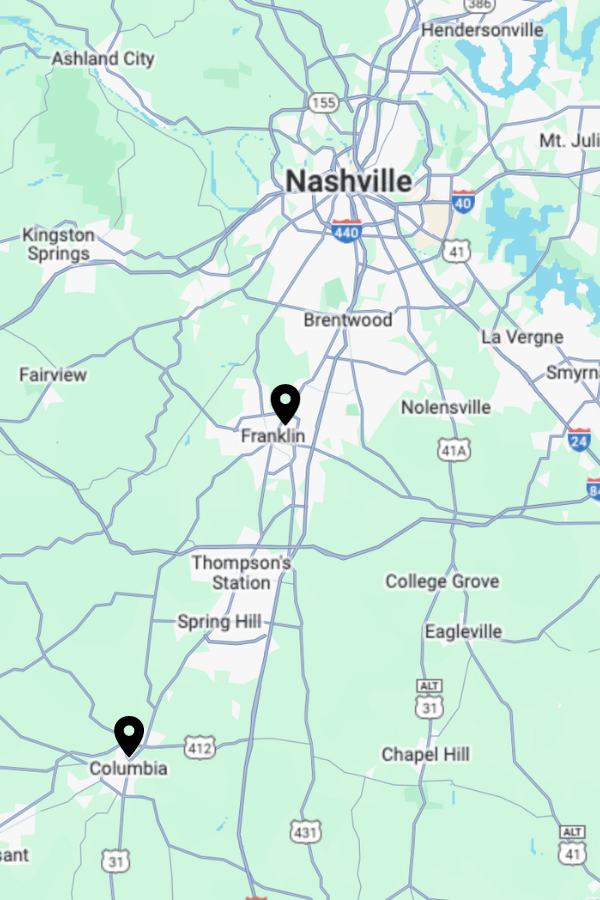Apex Addiction Recovery Center has multiple rehabilitation centers across Tennessee. These facilities offer a comprehensive range of rehabilitation services, providing support and treatment for various addiction issues. From substance abuse to mental health concerns, Apex Addiction Recovery’s centers prioritize holistic healing and personalized care.
At Apex Drug and Alcohol Addiction Recovery Center, our specialized opioid rehabilitation program addresses substance abuse, mental health challenges, and dual diagnosis cases. We provide comprehensive substance abuse treatment tailored to each client’s needs, offering support and therapies for holistic healing. Our goal is to assist clients on their journey to recovery, addressing all aspects of their well-being for lasting transformation.

Learning About Opioid Use Disorder (OUD)?
Understanding Opioid Use Disorder (OUD) is crucial in addressing the complexities of addiction. It includes a pattern of opioid use leading to significant impairment or distress. Symptoms include cravings, tolerance, and withdrawal, often resulting in compulsive drug-seeking behavior. OUD can arise from prescription painkillers or illicit substances like heroin.
Factors such as genetic predisposition, environmental influences, and mental health conditions contribute to its development. Treatment typically involves a combination of medication-assisted therapy, addiction counseling, and support services aimed at managing cravings, addressing underlying issues, and promoting long-term recovery and well-being.
The Popular Towns, Cities, and Sites of Middle Tennessee
Nestled within the Volunteer State, Middle Tennessee is a captivating region brimming with attractions. Nashville, known as the epicenter of country music, has the melodies of the Grand Ole Opry and honky-tonks. Knoxville and Memphis exude historical charm and culinary delights, with their finger-licking BBQ joints sure to please the taste buds.
Nature enthusiasts find comfort in the majestic beauty of the Smoky Mountains, while devotees of Elvis Presley make a pilgrimage to Graceland. And amidst the rolling hills, Dollywood is a testament to entertainment, offering thrilling rides and immersive experiences for all ages.
Free Addiction Assessment
Schedule a free, confidential assessment with a licensed clinician. Apex Recovery can check your insurance coverage levels for drug and alcohol addiction, and mental health treatment.
What is an Opioid Addiction Treatment Program?
An opioid addiction treatment program is a structured and comprehensive approach to help people overcome opioid addiction and regain control of their lives. These programs typically offer a combination of medical, psychological, and social interventions customized to each person’s unique needs. Treatment may involve opioid addiction medications such as methadone, buprenorphine, or naltrexone to manage withdrawal symptoms and cravings.
Additionally, therapy sessions, support groups, and counseling provide emotional and behavioral support. The ultimate goal of these programs is to promote recovery, reduce the risk of relapse, and improve overall quality of life by addressing the physical, psychological, and social aspects of opioid addiction.
Does Health Insurance Cover Opioid Addiction Rehab in Tennessee?
Health insurance coverage for opioid addiction rehab in Tennessee varies depending on the specific insurance plan. Many insurance providers offer coverage for addiction treatment, including detoxification, residential treatment, outpatient therapy, and medication-assisted treatment. However, the extent of coverage, including deductibles, copayments, and out-of-pocket expenses, may differ among plans.
It’s essential to review your insurance policy carefully and contact us at Apex Substance Addiction Recovery Center to understand what addiction treatment services are covered and any associated costs. Additionally, some state and federal programs may provide financial assistance or subsidies for those seeking addiction treatment.
Statistics on Opioid Addiction in Middle Tennessee
In Tennessee, the opioid crisis remains a pressing public health concern, with devastating consequences. In 2020, there were 2,388 opioid overdose deaths, while more than 6 million painkiller prescriptions were issued in 2019. Shockingly, this figure rose to 4,715,782 painkiller prescriptions in 2021. The impact extends to the most vulnerable, with 824 babies born with Neonatal Abstinence Syndrome in 2020.
Approximately 70,000 Tennesseans battle opioid addiction, contributing to the state’s ranking as the 3rd highest in prescription drug abuse. Tragically, opioid overdose deaths surged from 48% of total drug overdose deaths in 2000 to a staggering 75% by 2021, reaching 3,038 deaths. This epidemic reflects a drastic increase in opioid overdose death rates, soaring from 10.1 per 100,000 people in 2011 to 45.5 per 100,000 people in 2021.

- Please complete and send the form below.
- One of our staff members will contact your insurer to check your coverage.
- We will contact you promptly with the results and to discuss the next steps.
Insurance Verification
"*" indicates required fields
Locating Addiction Centers That Offer Opioid Rehab in Tennessee
Embarking on the journey to opioid rehab in Tennessee can be daunting but crucial for reclaiming one’s life from addiction. If you or someone you know is in need of specialized care and support, reach out to Apex Recovery. Apex offers comprehensive treatment programs, guiding individuals towards lasting recovery. For assistance, call (877) 881-2689 today.
Opioid Treatment Program in Tennessee (TN)
Apex Addiction Recovery Center in Tennessee operates several facilities in the state. Apex Recovery Franklin, situated at 4601 Carothers Pkwy STE 250A, Franklin, TN 37067, offers comprehensive treatment in a convenient location. Meanwhile, Apex Recovery Columbia, located at 2710 Trotwood Ave Suite A, Columbia, TN 38401, provides tailored care in two facilities – one for outpatient care and one for inpatient rehab – to aid in recovery journeys.
Apex Recovery Franklin
4601 Carothers Pkwy STE 250A
Franklin, TN 37067
Apex Recovery Columbia
2710 Trotwood Ave STE A & B
Columbia, TN 38401
How To Find an Opioid Addiction Rehab Facility Near Me
Here’s a comprehensive guide to assist you in finding an opioid addiction rehab facility near your location:
- Evaluate Your Needs: Begin by assessing whether you require inpatient or outpatient treatment. Consider any specific preferences you may have, such as a holistic approach to treatment, dual diagnosis support, or a particular type of therapy.
- Online Search: Utilize search engines and enter terms like “opioid rehab near me,” “Tennessee rehab for opioid addiction”, or “opioid addiction treatment centers in Tennessee” to explore available options.
- Utilize Online Directories: Explore online directories specializing in listing rehab facilities, such as SAMHSA (Substance Abuse and Mental Health Services Administration) or the National Helpline.
- Check Insurance Coverage: Review your health insurance policy to identify which rehab facilities are covered under your plan. Contact your insurance provider to obtain a list of in-network treatment centers or call us at Apex Alcohol and Drug Addiction Recovery Center to check your insurance today.
- Verify Accreditation: Ensure that any potential recovery facility holds proper accreditation and licensing. Accreditation can be verified through organizations like CARF (Commission on Accreditation of Rehabilitation Facilities) or The Joint Commission.
- Read Reviews: Research and read reviews and testimonials from former patients or their families. Consider exploring various review sources, including Google, Yelp, or specific healthcare review websites, to gather comprehensive feedback.
- Contact Potential Facilities: Reach out to the rehab facilities you are considering. Ask questions regarding their recovery programs, approaches, and success rates. Inquire about staff credentials, available therapies, and aftercare programs to ensure they align with your needs.
- Visit the Facility: If feasible, schedule a visit to the facility to gain a firsthand understanding of the setting and meet the staff.

What Are Different Types of Opioid Addiction Treatment Programs in Tennessee?
In Tennessee, various opioid addiction and withdrawal treatment programs cater to different needs. These include Partial Hospitalization Programs (PHP) providing intensive treatment while allowing patients to return home at night, Intensive Outpatient Programs (IOP) offering structured therapy sessions, Residential Programs providing 24/7 care and support, and Detox Treatment facilities aiding in the safe withdrawal process.
Partial Hospitalization Programs (PHP) for OUD Rehab
Partial Hospitalization Programs (PHP) in Tennessee offer intensive opioid use disorder (OUD) rehabilitation with flexibility. Patients receive structured treatment during the day, including therapy and medical supervision, while returning home in the evenings. PHPs provide comprehensive care, balancing intensive support with the ability to maintain connections to home life and community support networks.
Intensive Outpatient Program (IOP) for OUD Rehab
Tennessee’s Intensive Outpatient Programs (IOP) offer effective opioid use disorder (OUD) rehabilitation with a flexible approach. Patients attend structured therapy sessions several times a week, allowing for continued work, school, or family commitments. IOPs provide comprehensive support, combining therapy, education, and counseling to facilitate recovery while accommodating people’s daily responsibilities and routines.
Residential Program for OUD Rehab
Tennessee’s Residential Programs for opioid use disorder (OUD) rehabilitation offer immersive, 24/7 care in a supportive environment. Patients reside onsite for the duration of treatment, receiving round-the-clock medical supervision, therapy, and support. Residential programs provide a structured setting away from triggers and distractions, allowing clients to focus solely on their recovery journey in a safe and supportive atmosphere.
Detox Treatment for OUD
Detox Treatment for opioid use disorder (OUD) in Tennessee offers a crucial first step toward recovery. These programs provide medical supervision and support to safely manage withdrawal symptoms as patients rid their bodies of opioids. Opioid detox facilities offer a supportive environment and medical care to ensure a safe and comfortable transition into the next phase of addiction treatment.
Can You Tell if Someone is Addicted to Opioids?
Identifying opioid addiction in someone can be challenging, as the signs and symptoms can vary widely depending on individual factors such as the type of opioid used, the duration of use, and the person’s overall health. However, there are several common signs and behaviors that may indicate opioid addiction.
- Increased Tolerance: Over time, opioid users may need higher doses to feel the same effects, leading to increased drug use, a key sign of addiction.
- Withdrawal Symptoms: When unable to use opioids, individuals may experience withdrawal symptoms like agitation, nausea, and muscle aches, severity varying based on use duration.
- Changes in Behavior and Mood: Addiction can cause secrecy, withdrawal from social life, and mood swings, alternating between euphoria and depression.
- Neglect of Responsibilities: Addicted individuals may neglect work, school, or home duties, impacting performance and straining relationships.
- Physical Signs: Opioid addiction may manifest in constricted pupils, drowsiness, slowed breathing, itching, flushed skin, and injection marks.
- Health Issues: Opioid addiction can lead to respiratory depression, infections from injecting, and worsened mental health conditions like depression and anxiety.
What Are Different Types of Opioid Addiction Treatment Medications?
Various medications are utilized in the treatment of opioid addiction, each with its unique mechanism and benefits. Buprenorphine-Naloxone, commonly known as Suboxone, is a combination medication that helps reduce opioid cravings and withdrawal symptoms. Buprenorphine, the primary component, partially activates opioid receptors, alleviating withdrawal symptoms without inducing the same euphoric effects as full opioids. Naloxone is added to deter misuse.
Buprenorphine, available as Subutex, is another medication used to manage opioid addiction. Like Suboxone, it mitigates withdrawal symptoms and cravings but lacks the deterrent effect of naloxone. Methadone, a long-acting opioid agonist, has been a cornerstone of opioid addiction treatment for decades. It prevents withdrawal symptoms and reduces cravings by activating opioid receptors, though its use requires daily visits to specialized clinics due to its potential for misuse.
Naltrexone, or Vivitrol, is an opioid antagonist that blocks the effects of opioids by binding to opioid receptors without activating them. It helps prevent relapse by blocking the euphoric effects of opioids. Each of these medications plays a vital role in opioid addiction treatment, and the choice depends on factors such as individual needs, medical history, and treatment goals.
What Are the Health Insurance Providers That Offer Coverage for Opioid Use Disorder Rehab?
Several major health insurance providers offer coverage for opioid use disorder (OUD) rehab in Tennessee. Blue Cross Blue Shield (BCBS), Aetna, and Cigna are among the largest providers to offer comprehensive coverage for addiction treatment services, including detoxification, inpatient and outpatient rehabilitation, therapy, and medication-assisted treatment.
Additionally, UnitedHealthcare, Humana, and Anthem are other prominent insurance companies that often provide coverage for OUD rehab. However, coverage may vary depending on the specific plan and policy, so it’s crucial to review the details of your insurance plan or contact the experts at Apex Recovery to confirm coverage for addiction treatment services.
How Much Do Opioid Treatment Programs Cost in Middle Tennessee Without Health Insurance Coverage?
The cost of opioid treatment programs in Middle Tennessee without health insurance coverage can vary widely depending on several factors, including the type and duration of the program, the amenities offered, and the specific services provided. On average, patients can expect to pay anywhere from a few thousand dollars to tens of thousands of dollars for treatment.
Outpatient programs may be less expensive than residential or inpatient programs due to the reduced overhead costs. Additionally, medication-assisted treatment and therapy sessions may incur separate fees. It’s essential for people considering treatment to ask about the drug and alcohol cost upfront and explore potential financial assistance options if insurance coverage is unavailable.

Are There Withdrawal Symptoms from Opioid Use?
When opioid use is abruptly discontinued or significantly reduced, the body reacts to the absence of the drug, resulting in a range of physical and psychological symptoms. These withdrawal symptoms can vary in severity depending on factors such as the type of opioid used, the duration and frequency of use, and individual differences in metabolism and overall health.
Some of the most common withdrawal symptoms associated with opioid use include:
- Agitation: People may experience feelings of restlessness, irritability, and unease. Agitation is often accompanied by an intense craving for opioids, driving people to seek out the drug to relieve discomfort.
- Muscle Aches and Pains: Opioid withdrawal can cause generalized muscle aches and pains throughout the body. These sensations may range from mild discomfort to severe muscle cramps, making it difficult for people to find relief or rest.
- Nausea and Vomiting: Gastrointestinal symptoms such as nausea and vomiting are prevalent during opioid withdrawal. These symptoms can be distressing and may contribute to dehydration and electrolyte imbalances if left untreated.
- Diarrhea and Abdominal Cramping: Opioid withdrawal often leads to gastrointestinal disturbances, including diarrhea and abdominal cramping. These symptoms can be severe and contribute to overall discomfort and distress during the withdrawal process.
- Sweating and Chills: Fluctuations in body temperature are common during opioid withdrawal, leading to episodes of profuse sweating followed by chills or goosebumps. These fluctuations can disrupt sleep patterns and exacerbate feelings of discomfort and agitation.
- Anxiety and Depression: Psychological symptoms such as anxiety and depression are prevalent during opioid withdrawal. People may experience overwhelming feelings of fear, sadness, or hopelessness, making it challenging to cope with the physical discomfort of withdrawal.
Are There Free Assessments and Testing for OUD in Middle Tennessee
Yes, in Middle Tennessee, Apex Recovery offers complimentary assessments and testing for Opioid Use Disorder (OUD) as part of our admissions process. This free service allows people to undergo a comprehensive evaluation to determine the severity of their addiction and identify personalized treatment options.
By offering free assessments and testing, Apex Recovery helps remove barriers to treatment and ensure that people receive the support and resources they need to begin their journey to recovery. Whether someone is seeking help for themselves or a loved one, Apex Recovery’s compassionate team is available to provide guidance and support every step of the way. Call us at (877) 881-2689 today or contact us online.
What is the Opioid Use Disorder (OUD) Admissions Process at Apex Recovery?
At Apex Recovery, the admissions process for Opioid Use Disorder (OUD) treatment is designed to be comprehensive, supportive, and individualized. Here’s an overview of the OUD admissions process at Apex Addiction Recovery Center:
- Initial Contact: where individuals or their loved ones reach out to Apex Recovery for assistance. During this initial inquiry, people may speak with a member of the admissions team who can provide information about the treatment programs offered, answer questions, and discuss the next steps in the admissions process.
- Assessment and Evaluation: determine the severity of their OUD and identify personalized treatment needs. This assessment may include a review of medical history, substance use history, mental health status, and other relevant factors to develop an individualized treatment plan.
- Insurance Verification: verify insurance coverage and explore payment options for treatment. The admissions team can assist individuals in navigating insurance benefits, understanding coverage options, and determining any out-of-pocket expenses associated with treatment.
- Treatment Planning: the admissions team works with individuals to develop a personalized treatment plan tailored to their unique needs and circumstances. This treatment plan may include a combination of medication-assisted treatment, therapy, counseling, and support services to address OUD and any co-occurring mental health disorders.
- Admission to Treatment: individuals are admitted to the appropriate level of care at Apex Recovery. Whether it’s residential treatment, intensive outpatient programming, or another level of care, clients receive the support and resources they need to begin their recovery journey in a safe and supportive environment.
Throughout the admissions process, Apex Recovery’s compassionate team is available to provide guidance, support, and encouragement every step of the way. By offering personalized care and individualized treatment planning, Apex Recovery helps people achieve lasting recovery from Opioid Use Disorder and reclaim their lives.

Facts About Opioids
Derived from substances that are naturally formed in poppy plants, opiates block receptors in the brain that allow you to experience pain. This makes the drugs a powerful intervention in extreme medical situations such as post-surgery. It also means that the psychological and emotional effects can be profound. Along with their pain-killing properties, opiates produce a significant high due to their interactions with the dopamine and serotonin systems, brain chemical pathways related to the experience of pleasure and reward. These plant-derived drugs include:
- Heroin
- Morphine
- Codeine
In the present day, many lab-created opioids are also widely available. Sadly, because these synthetic opioids are often even more potent than their plant-derived progenitors, their addiction potential is higher as well. The most well-known synthetic opioid is surely fentanyl, but others include:
- Oxycodone (OxyContin)
- Hydrocodone (Vicodin)
- Methadone
- Tramadol (Ultram)
Opioids are addictive because of the high the product induces and also because the brains of people who use them physically change, coming to rely on the drugs more and more to experience pleasure and even basic mood stability. The brain also becomes tolerant over time. This means that your body needs more and more of the drug to achieve the same effects.
Signs You May Need Opioid Rehab in TN
In general, substance use treatment is only effective if the client is fully ready to engage with it. Many family members want loved ones living with addiction to seek treatment. Unless the person using is actually willing to do the work, however, clinical interventions are likely to have only short-lived results. That said, here are a few signs you or your loved one might benefit from opioid rehab:
- You often contend with flu-like symptoms
- Sleeping for a healthy amount of time is a challenge
- You’ve lost weight rapidly and may have appetite changes
- Your sex drive is diminished
- You often feel drowsy and your heart rate and breathing may be depressed

What Happens in an Opioid Rehab Program?
Opioid rehab begins with detox. The body must fully rid itself of the addictive substances before the work of psychological and behavioral recovery can begin. There are several highly effective medications available that can help reduce withdrawal symptoms and cravings in early recovery, which recovery facilities may or may not include in their protocol. In residential detox, round-the-clock supervision and quality care are crucial elements of treatment. Healthcare staff ensure your vitals remain stable during this challenging process, and also take care that you receive adequate fluids and nutrition as your body performs vital healing work.
Following detox, talk therapy is essential to recovery. Clients engage with evidence-based techniques like cognitive-behavioral therapy and dialectical behavior therapy, which teach coping skills in the face of stressors that trigger the desire to use opioids. Counselors also help their clients understand the root causes of their addictions and assess any co-occurring mental health concerns such as depression or personality disorders.
Finally, group therapies can help clients build self-trust and healthy relational skills. Groups often provide powerful accountability and non-judgmental support during the recovery journey. Combined with holistic approaches like music or massage therapy, clients can reap the benefits of treatment that embraces them as a whole person. In truth, building an addiction-free life depends on all aspects of self, the mental, physical, and emotional. Therefore, an opioid addiction treatment approach that includes all these areas can best support client success.

More Info and Stats on Opioid Use Disorder (OUD) in Tennessee
- There were 2,388 opioid overdose deaths in TN in 2020
- There were more than 6 million painkiller prescriptions in 2019
- There were 4,715,782 painkiller prescriptions in TN in 2021
- 824 babies were born in the Volunteer State with Neonatal Abstinence Syndrome in 2020
- Approximately 70,000 Tennesseeans are addicted to opioids
- Tennessee is ranked 3rd in the country for prescription drug abuse
- In 2000, opioid overdose deaths represented 48% of total drug overdose deaths in the U.S.
- By 2021, opioid overdose deaths represented 75% of total drug overdose deaths in the U.S.
- In 2021, there were 3,038 opioid deaths in Tennessee
- Opioid deaths accounted for 80% of all drug overdose deaths in the state in 2021
- In 2011, the opioid overdose death rate was 10.1 per 100,000 people
- In 2021,the opioid overdose death rate was 45.5 per 100,000 people

